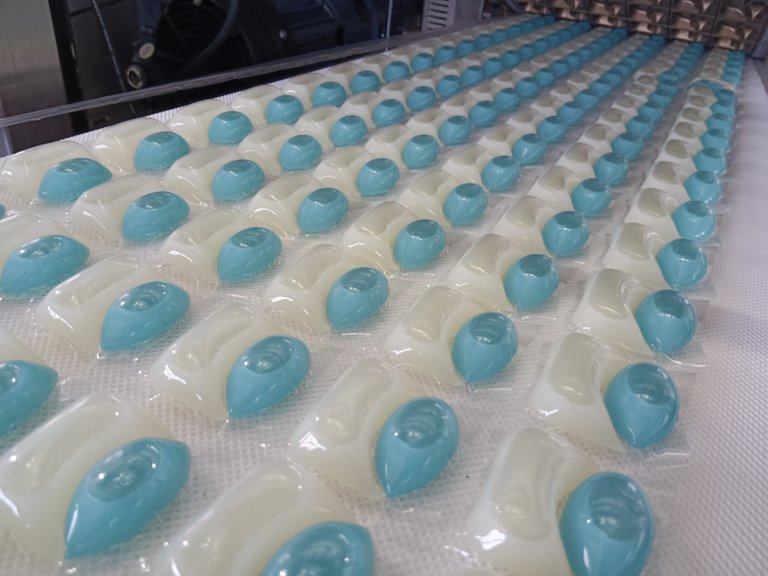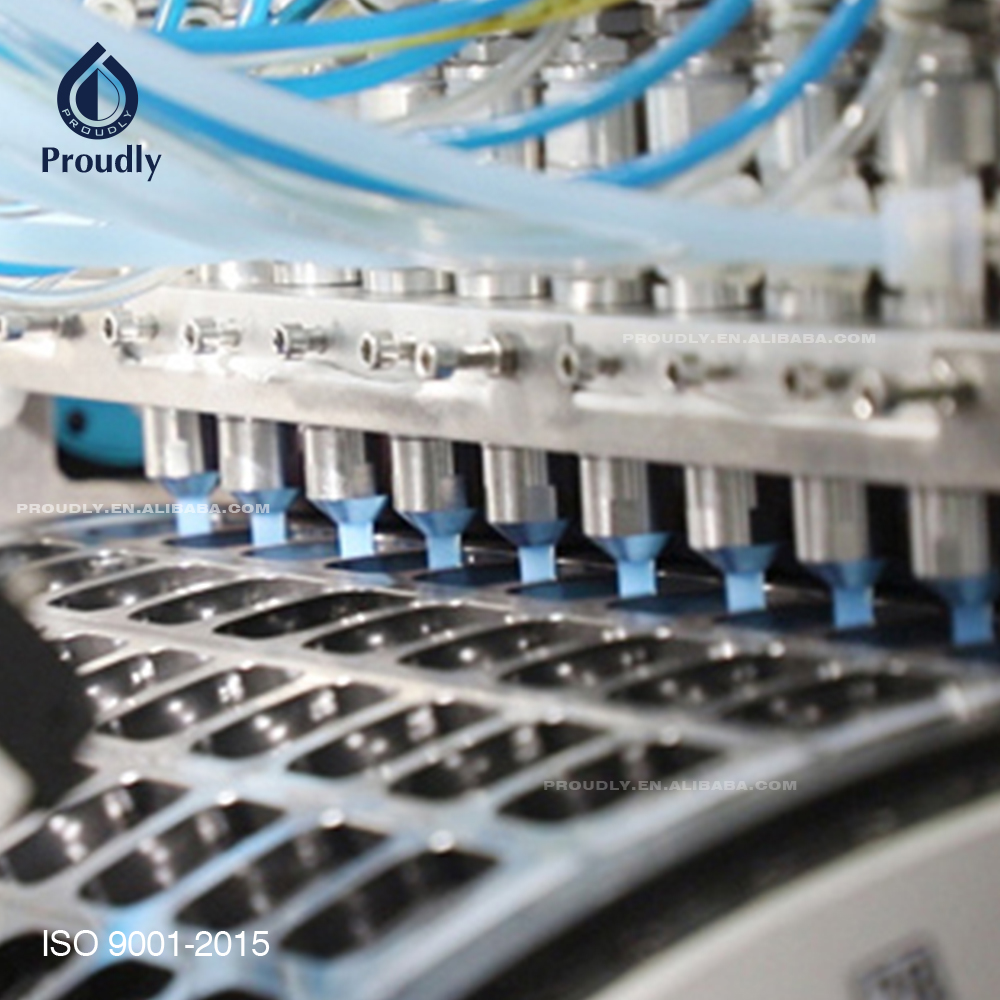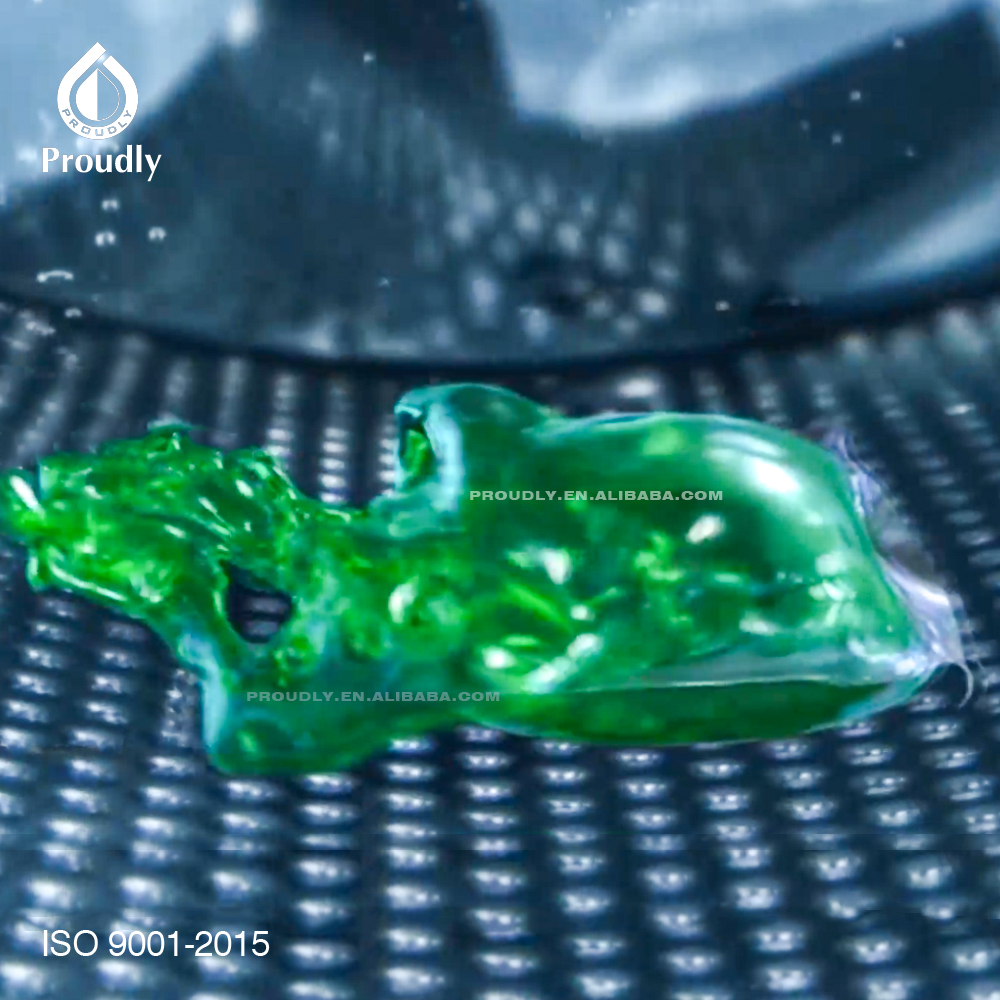- All
- Product Name
- Product Keyword
- Product Model
- Product Summary
- Product Description
- Multi Field Search
Views: 0 Author: Site Editor Publish Time: 2025-06-07 Origin: Site
When it comes to choosing a dishwasher detergent, the market offers a variety of forms to suit different preferences and needs. Tablets, pods, liquids, and powders are the most widely used, but how do they compare? Choosing the right detergent can affect cleaning efficiency, cost, and even environmental impact. This article provides an in-depth comparison of these detergent forms, exploring their advantages, disadvantages, and overall effectiveness. We’ll also touch on their eco-friendliness and conclude with our recommendation.

Dishwasher detergents are designed to remove food residues, oils, and stains, leaving your dishes sparkling clean. However, not all forms offer the same performance. Here's a breakdown of the primary options available:
Tablets are pre-measured blocks of dishwasher detergent. Compact and easy to use, they are a popular choice for those looking for convenience. Tablets are typically individually wrapped in materials like PVA film, which dissolves in water, ensuring mess-free usage. Advantages:
Precisely measured doses prevent overuse. Easy to store and handle.
Often include additional cleaning agents like rinse aids or water softeners. Disadvantages: Tend to be more expensive on a per-use basis. May not dissolve entirely in shorter dishwasher cycles.
Less customizable for smaller or lighter loads. Effectiveness: Tablets generally perform well in standard cycles, particularly on heavily soiled dishes. However, their one-size-fits-all nature may not be ideal for all cleaning needs.
Pods are single-use sachets containing a pre-determined amount of detergent. Similar to tablets, they're often wrapped in water-soluble PVA film. Pods stand out due to their ease of use and compact design. Interestingly, pods for dishwashers bear many similarities to laundry pods, with both relying heavily on precise formulation for effective cleaning. Advantages:
Ultra-convenient with no measuring required. Compatible with standard dishwasher cycles.
Some pods may include multi-function formulas (detergent, rinse aid, etc.). Disadvantages: Can pose a safety risk to children if not stored securely.
Higher cost compared to loose detergent forms.
Sometimes less effective on quick wash cycles if the film doesn't dissolve fully. Effectiveness: Much like tablets, pods deliver strong cleaning power, especially for normal and heavily soiled loads. They add a layer of convenience thanks to their straightforward, no-mess usage.
Liquid dishwasher detergents provide flexibility for dosing and are ideal for quick, small loads. However, despite their advantages, they may struggle with more stubborn or baked-on residues. Advantages:
Easy to measure for customized dosages. Performs well in quicker wash cycles. Often more affordable than tablets or pods. Disadvantages: Prone to overuse, leading to waste. Packaging may result in higher plastic waste.
May lack additional cleaning agents found in other forms. Effectiveness: The flexibility of using as much or as little liquid detergent as needed is both a pro and con. While great for light loads, liquid detergent may not always provide the heavy-duty cleaning power of its solid counterparts.
Powder detergents have been a staple in households for decades. With a low cost and customizable dosing, they remain a favorite for budget-conscious consumers. Advantages: Cost-effective and economical for larger families.
Customizable dosages for different cleaning intensities. Long-lasting shelf life when stored properly. Disadvantages:
More effort to measure and handle. Prone to clumping in humid environments. Can sometimes leave residue if improperly dissolved. Effectiveness: Powders stand out as the most customizable option, though they may not always be the top choice for quick or delicate cycles due to clumping or incomplete dissolution.


For a quick comparison, refer to the table below that highlights the key features of each detergent form:
| Feature | Tablets | Pods | Liquids | Powders |
|---|---|---|---|---|
| Ease of Use | High | High | Medium | Low |
| Cost per Use | Higher | Higher | Moderate | Low |
| Customizability | Low | Low | High | High |
| Effectiveness | High (standard cycles) | High (standard cycles) | Moderate | Moderate-high |
| Eco-Friendliness | Moderate (PVA film) | Moderate (PVA film) | Low (plastic packaging) | Moderate-high (if less packaging) |
Sustainability is a growing concern for many households. Among the factors to consider are packaging waste, the presence of harsh chemicals, and energy consumption.
Tablets and Pods: Most tablets and pods use water-soluble PVA film packaging, which dissolves in your dishwasher and avoids plastic waste. However, the manufacturing process for tablets and pods often uses more energy compared to simpler liquid or powder alternatives.
Liquids: Liquid detergents typically come in plastic bottles, contributing to plastic waste. They may also contain more water as part of their formula, which increases the carbon footprint for shipping.
Powders: Powders often have minimal packaging, which may make them a more eco-friendly choice, especially if purchased in bulk. However, if overdosed, they can lead to excess chemical runoff into water systems. Choosing a detergent form with eco-certified ingredients and recyclable or biodegradable packaging can further reduce environmental impact. Brands that contribute to sustainability through sourcing and manufacturing practices are worth considering.
Pods and liquid detergent each have their strengths. Pods are convenient and mess-free, while liquids offer control over dosage, which can be useful for small or lightly soiled loads.
Yes, PVA film is water-soluble and biodegradable under the right conditions. It is considered an eco-friendlier choice compared to traditional plastic packaging.
No, dishwashing tabs are specially formulated for dishwashers and should not be used in laundry. For laundry, opt for laundry detergent pods, which are engineered for different cleaning needs.
Store powder detergent in a cool, dry place in an airtight container to prevent clumping and maintain its shelf life.
Most tablets and pods are designed to be safe for septic systems. However, it’s best to double-check product labels to ensure they do not contain ingredients harmful to septic tanks.


After comparing dishwasher detergent forms in detail, it’s clear that each option has its strengths depending on your household’s specific needs. For those who prioritize convenience and ease of use, pods or tablets wrapped in PVA film are excellent choices. If cost and customizability are more critical, powders and liquids may serve better. When selecting a detergent, we highly recommend choosing environmentally conscious brands that align with your values. One such brand is Proudly, offering reliable cleaning performance across its dishwasher detergent products while prioritizing sustainability. For more information about their products, you can reach Proudly at:
Email: proudly@proudly.com.cn
Phone: +86-13802609114
By making an informed choice, you can achieve spotless dishes while staying true to your budget and environmental values.